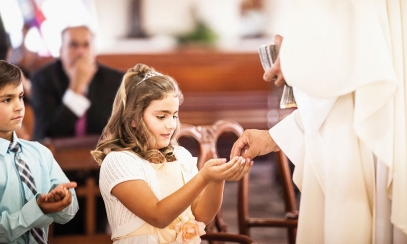
Do I need to buy the latest “thing” for my child?
Sometimes parenting is just plain tricky, and one of the things that adds to the trickiness is the influence others have on us and on our kids. Parenting is personal but there is no shortage of opinions, advice and emotions that can contradict our views and practices. Teaching our children to gratefully understand the difference between needs and wants is a lesson we have on repeat. We thought it might be helpful to offer some ideas for kids who seem to want all the things others have.
Sometimes parenting is just plain tricky, and one of the things that adds to the trickiness is the influence others have on us and on our kids. Parenting is personal but there is no shortage of opinions, advice and emotions that can contradict our views and practices. Teaching our children to gratefully understand the difference between needs and wants is a lesson we have on repeat. We thought it might be helpful to offer some ideas for kids who seem to want all the things others have.
Start with truth
You can’t always get what you want, and there are reasons for that. Explain that sometimes the reason we say no is financial. Sometimes it isn’t in line with our priorities, skill, time or values. We aren’t just saying no to be mean and suck all the fun out of life; besides, happiness doesn’t come from stuff.
Listen
It's not always about the Stanley cup or designer thing that catches kids’ attention. Very often when they come home begging for the “thing” – telling you they won’t fit in if they don’t have “it” – they may be feeling like they are on the fringes for reasons that have nothing to do with stuff. Take the time to ask questions and listen to them; being a kid can be tough and they may need help sorting things out.
True value
Remind your kids that they have value because they are created, directed, adored and protected by a God who loves them more than they can fathom, and that is what gives them true value, not “stuff” or “things.” God’s love is unconditional, so if someone at school or on the team will only like them if they have the “thing,” that is not the kind of belonging or friendship that will enhance their life. A great question to ask: “How will that thing you think you have to have or the people who say you have to have it help you become a saint?”
Virtues
Situations like these are the perfect place to teach and practice temperance, generosity and prudence. Show and tell can be more helpful than arguing about buying an overpriced or unnecessary thing when you spend some time noticing or helping someone who is in great need.
The long game
Resisting impulse and “want-based” purchases can help kids learn to be wise consumers. If they grow up getting all the things they want, they won’t develop the patience, discernment and money sense necessary in adulthood. Since many of the “I have to have it” items wind up in the back of the closet or under the bed, establishing a “think, pray and wait” process can be helpful in curbing materialistic thinking.
You’re my child
Kids need to understand you are loving them the best way you can and sometimes that means you make decisions they don’t like no matter what other families do. Kids will say hurtful things, but the “in thing” won’t change that. When kids know their true value and that they are loved and accepted by you, the opinion of the world doesn’t matter so much. My mother used to say her job was to love me, pray with me and oil my feathers so the unkind or silly words of others would roll off like water off a duck’s back.
Sheri Wohlfert is a Catholic wife, mom, grandma, speaker and writer. Catch her blog at www.joyfulwords.org.



